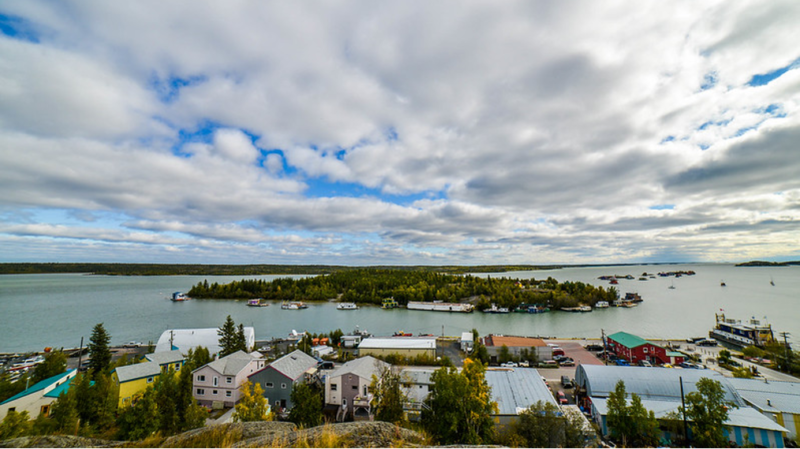Indigenous stewards in the Canadian Arctic have adapted their roles in response to the coronavirus pandemic, amplifying long-held traditions.
For the past five years across northern Canada, MakeWay has supported Indigenous communities to hire local inter-generational crews to monitor, manage, and steward their lands and waters.
Participation in these crews provides a unique livelihood opportunity that puts indigenous people back on the land to carry out monitoring and caretaking, while also hunting, fishing, sharing oral histories, and maintaining other cultural practices.
In contrast to most other job opportunities available in these communities (for example extractive industries), these indigenous stewardship programs enable people to move out of poverty in a way that celebrates and maintains their culture and natural resources.
In 2016, MakeWay developed the Arctic Indigenous Stewardship Network to increase collaboration and knowledge sharing among these stewardship programs. The Network supports Inuit- and Dene-led efforts across the Canadian North to monitor and care for the land.
Since Covid, the Network has pivoted their work to strengthen responses to the pandemic.
Members of Inuit and Dene communities in the Network now are bringing their hunting and harvesting expertise to mitigate the impacts of the pandemic on insecure rural supply chains.
“There has been increasing focus on using Indigenous stewards to harvest country food as a way to address food insecurity,” said Stephen Ellis, the leader of MakeWay’s Northern Programme.
“Indigenous stewards have also been put to work providing emergency response services, such as delivering food and PPE within communities, moving families into outpost camps to promote social distancing, and so forth.”
“For many people, Covid has given us an opportunity to think about our food systems and our food sources,” said Lori Tagoona, a senior associate at MakeWay in Northern Canada.
“If you’re reliant on food purchased from the local store, your food security is jeopardized,” she said, adding that “if you are a hunter, and are able to provide for your family in this manner, you are in a much more secure position.”
Covid-19 is not the first crisis response by Arctic Indigenous Stewardship Network members. Inuit and Dene communities have already been grappling with another crisis for years: the changing climate.
Climate change impacts in the Arctic include unpredictable ice conditions limiting social interaction and travelling to hunt, among others.
This, combined with centuries of historical trauma and abuse, has created a state of immense vulnerability.
“Indigenous peoples are more likely to turn to extractive industries for economic relief and are encouraged to do so by governments and industry and a vicious cycle ensues,” Ellis suggests.
“The pursuit of this way out of poverty further accelerates climate change, degrades Indigenous culture and ecosystems,” and is, as Ellis adds, “what climate injustice looks like in the Canadian Arctic.”
Ellis suggests that “in the search for just solutions to climate change disruption in northern Canada, we must look to revitalize linkages between Indigenous economies, vibrant contemporary cultures, and healthy ecosystems.” The community stewardship programs do this by creating livelihoods based on stewardship of the environment, thus building culturally-appropriate and just economic pathways.
The network has been made possible, in part, by a $400,000 grant in 2018 from the Climate Justice Resilience Fund, which has helped to scale up programmes faster and more effectively; now the Network is solidifying into an entity that MakeWay hope will have more formal governance and administrative processes in place.
The way in which Indigenous communities have responded to the pandemic emphasises the importance of Inuit knowledge and culture when planning for adaptation and mitigation of other key issues.
“It’s important for Indigenous people to make decisions in the lands and waters that surround them,” said Tagoona.
“The information and knowledge of local people is derived from lived experiences, direct observations, and interactions, but also through collected experiences over countless generations.”
This post was sponsored by the Climate Justice Resilience Fund. See our editorial guidelines for what this means.
